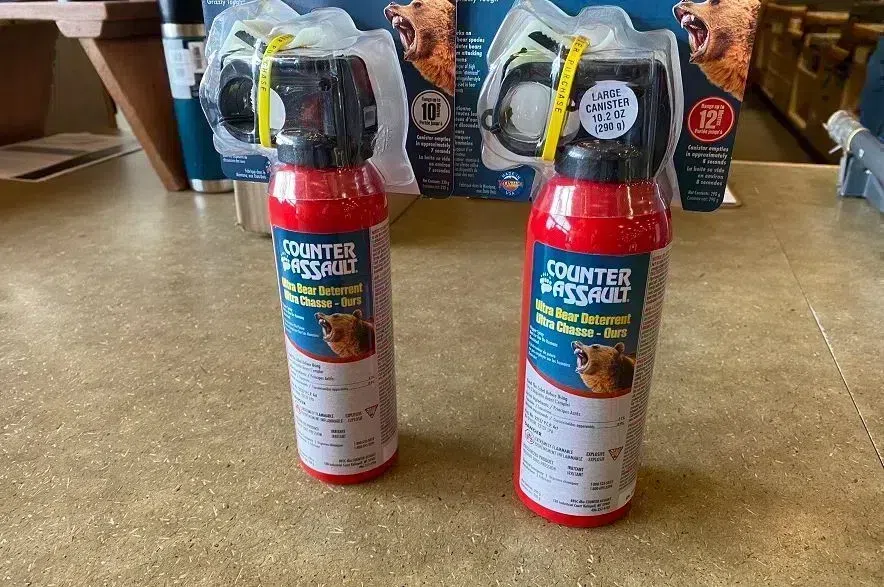Read More:
- Saskatoon Mayor Cynthia Block delivers first state of the city address
- Regina police officer shoots and injures dog while responding to theft call
- Wildlife experts believe bear wandering into Regina a rare situation
The suspects had fled the scene before the officers arrived, police said, but video footage told the story.
“Upon arrival, officers viewed video evidence and found that a verbal confrontation had occurred between a man and a woman before they both produced and discharged bear spray at one another,” the Saskatoon Police Service said in a statement.
“Through continued investigation, both the 25-year-old woman and 32-year-old man were identified and have been charged with mischief over $5000, assault with a weapon, and various weapons-related offences. The man was also charged with breaching court-imposed conditions.”
What is bear spray?
Bear spray is a deterrent containing capsaicin, a chemical found in chili peppers. The canister releases a cone-shaped cloud of spray at a speed of over 100 km/h, approximately 10 m away. Capsaicin inflames the eyes and respiratory system of both animals and humans.
According to bearwise.org, the spray is oil-based, so first aid for the bear spray is to wash off the residue with soap and water, don’t rub your eyes or nose, and rinse your eyes with clean water until the irritation subsides. The effects generally wear off in about 45 minutes, the bear awareness site says.
Last year, the provincial government announced new regulations aiming to reduce the number of criminal incidents involving bear spray.
The changes include regulations to restrict the possession of bear spray in public urban spaces and a ban on altering bear spray to hide or disguise the product’s identity. Anyone charged under the new regulations could face fines of up to $100,000.
According to the provincial government, police in Saskatchewan have responded to over 3,000 bear spray incidents over the last five years, but the total number of incidents involving bear spray could be much higher when factoring in unreported cases.











